Israel-Hamas War: What happened on day 159?
Netanyahu: Israel facing international pressure to prevent Rafah invasion • Israeli sources report 'positive developments' in hostage deal
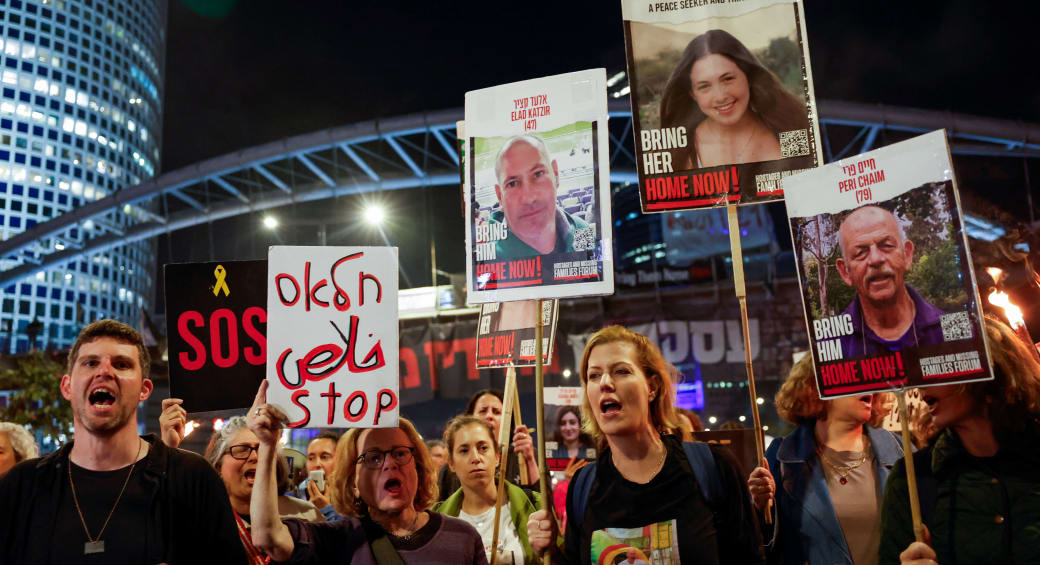
The statistics show that Yahya Sinwar is still the king of Gaza, even in the bunker
Is the Gazan public fed up with Hamas? It's really not clear.
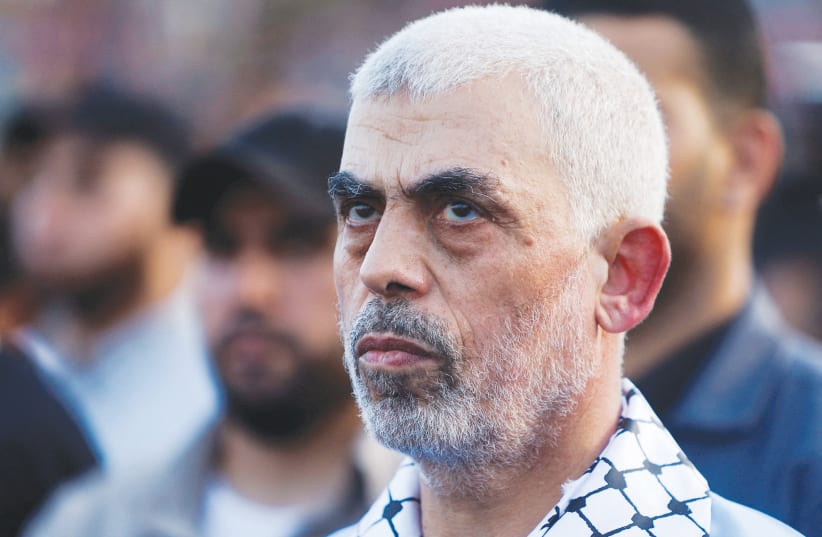
A special analysis conducted by the business intelligence company "Buzzilla" for Maariv shows that in the last three weeks, the general discourse on Arabic language social media in Gaza has been mainly positive towards the Hamas terrorist organization in general and towards its leader in the Gaza Strip, Yahya Sinwar, in particular.
The data analysis showed that the general discourse towards Sinwar is positive—a surprising figure since discourse on social media tends to be critical.
The company's experts point out that it is possible to detect an increase in the positive discourse towards Sinwar personally when threats against him from the Israeli side come up in the media.
For example, after the IDF spokesman stated that "the fighters will get to Sinwar alive or dead," many reactions were seen on Gazan social media praising him as the one who surprised Israel, and despite all the intelligence in Israel's possession, he is still in hiding.
No conversation calling for the release of the abductees was found during the inspection.
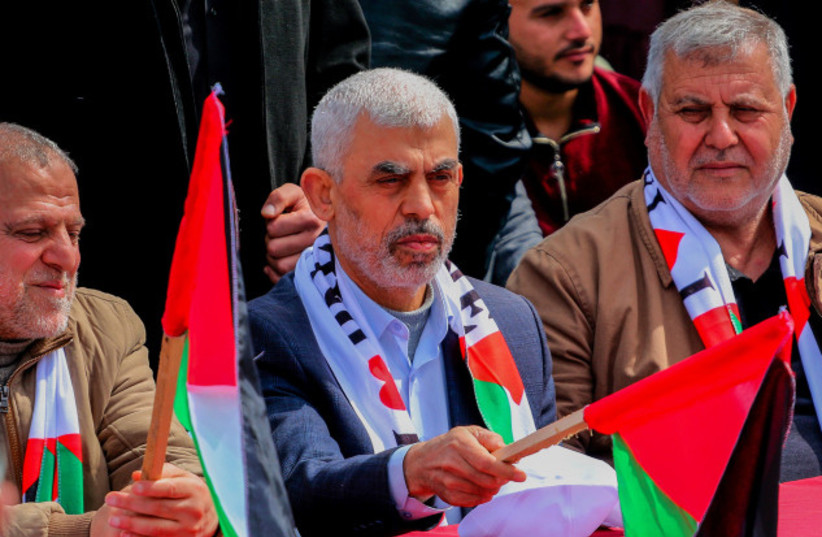
Analysis of support for Sinwar
In the first period, between February 25 and March 2, nearly 20,000 interactions dealing with Sinwar were recorded, with the great majority of them being positive.
The posters mainly responded to comments about the war with an emphasis on the possibility of a hostage deal, in which they praised and glorified his personality. For example, a comment was found in which one of the posters wished "that her son would be a leader like Sinwar."
Alongside the positive discourse, many comments were found that blamed Israel for the situation in Gaza, wished for the "destruction of the Zionist enemy," and prayed for the Palestinian people.
In the second period, from March 3 to March 9, there was a jump in the amount of discussion about Sinwar on Gazan social media.
Almost 44,000 interactions were found, with the assessment that the cause of the increase is the culture of reports about the possibility of a hostage release deal and a ceasefire before Ramadan.
Precisely during this period, there was a moderate increase in the number of negative reactions towards Sinwar and Hamas, possibly in anticipation of a pause in the fighting and an understanding of the size of the destruction in the Gaza Strip.
Negative reactions can be seen mainly in articles that review the damage in Gaza - starting with the displaced, through the destruction of the infrastructure, and ending with the dead.
In response to these publications, many posters can be seen asking, "Where is Sinwar?".
The company's experts also identified a broad discourse that directly blames the Gazan leader ("You destroyed us," "It wasn't worth it," and even curses, "May God curse you, Sinwar").
On the other hand, broad support was still identified among the posters and called to "destroy the Zionist enemy."
In the third period, March 10 to March 13, there were again many positive reactions towards the leadership of Hamas in the Gaza Strip and many negative reactions towards Israel.
With Ramadan starting without achieving a pause in fighting, many comments were found that praised Sinwar as someone who "stands firm in the face of Israeli threats."
The increase in the positive discourse towards Hamas is also attributed to the many reports according to which Israel apparently succeeded in eliminating the "Hamas Chief of Staff" Marwan Issa.
Go to the full article >>US federal judge delegation explores Oct 7 challenge to Israeli legal system
The judges' trip included an exploration of International Humanitarian Law and the laws of war from the Israeli perspective.
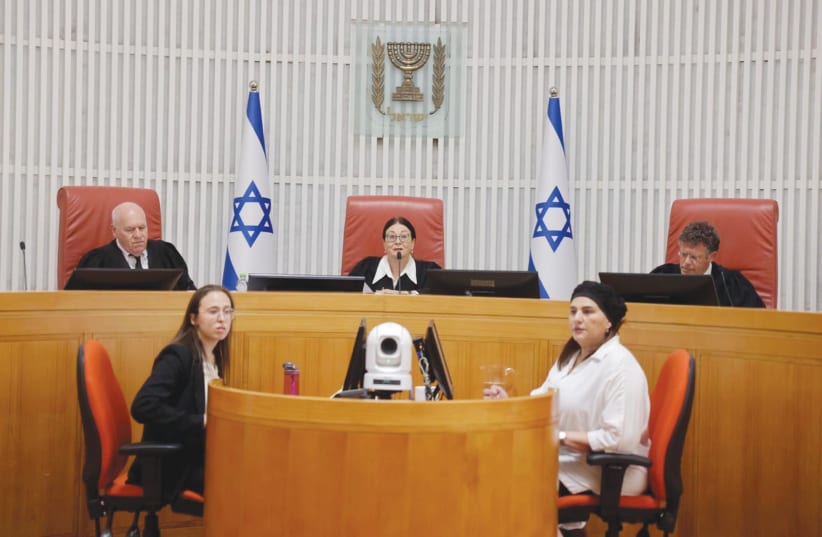
A delegation of 14 US federal judges arrived in Israel on Sunday for a week-long educational tour on the impact of the October 7 massacre and its challenges to the Israeli legal system and the laws of war.
The delegation, facilitated with the help of the World Jewish Congress, also saw the judges visit the Supreme Court of Justice and meet with Justice Ofer Grosskopf.
"We came to learn about how the Israeli legal system works," said Florida Southern District Court Judge Roy Altman, one of the organizers of the trip.
The Jewish Venezuelan-born judge—the youngest federal judge appointed in the US—wanted to know how the legal system managed to address terrorism in general and post-October 7. He noted that the United States saw a lot of new security legislation introduced since the September 11 terrorist attacks, and the discourse centered around the balance of individual rights against safety concerns.
Altman said he was interested in learning "How is Israel managing that balance?"
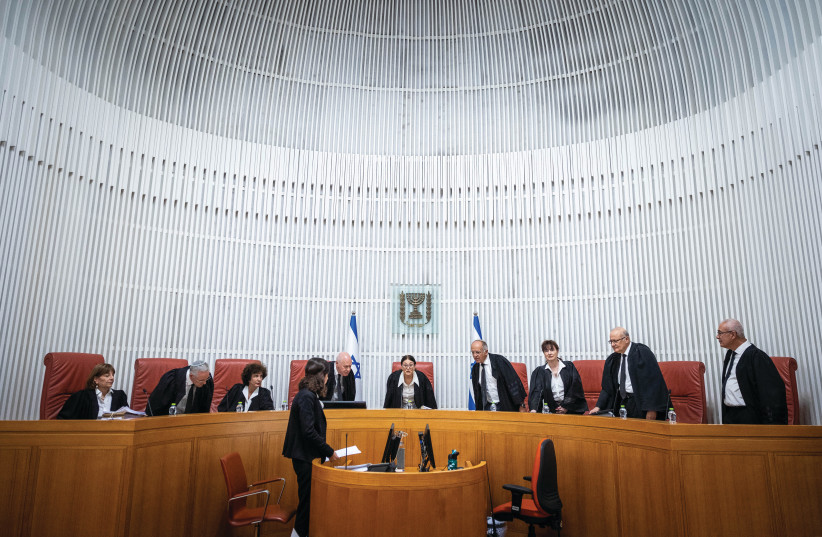
US Federal Claims Court Judge Matthew Solomson, another trip organizer, said that it was apparent how deeply the October 7 attack hurt Israelis and Israeli society. Arkansas Eastern District Court Judge Lee Rudofsky, the third trip organizer, hoped that the effects of the collective trauma the country had endured would be temporary -- Israelis, in his eyes, were surviving but not truly living.
Rudofsky felt it was important to bear witness to the atrocities of October 7. He said he was reminded of how General Dwight Eisenhower made sure to document the Holocaust during World War II. As leaders of the community, Rudofsky wanted to see with their own eyes so that they could talk to their community members about the subject. The judge thought it was amazing that so many of his colleagues came to learn about Israel and October 7 when they had such busy schedules.
Judges explore international humanitarian law from Israeli perspective
The judges' trip included an exploration of International Humanitarian Law and the laws of war from the Israeli perspective. The delegation spoke on Monday to the Foreign Ministry legal advisor Tal Becker, who defended Israel before the International Court of Justice against South Africa's genocide accusations. On Wednesday the delegation met with representatives from the IDF, which presented their thoughts on the laws of warfare and the legal challenges faced in the battlefield.
Rudofsky said the trip provided the political and social context to Israel's legal system. This context was emphasized by former president Reuven Rivlin, who welcomed the delegation to Jerusalem on Tuesday.
Rivlin said that the judges needed to know the context to the existence of the Jewish state, of the trials in tribulations the Jews had endured in the diaspora, and how they had no other state they could ultimately rely on. The need for Israel as a democratic and Jewish state was all the more important in the wake of October 7, in which Hamas had killed people because they were Jewish. Supported by Iran, he said that the goals of Hamas were not in the interest of Palestinian political aspirations but about the genocide of Jews worldwide. Rivlin said that no state would tolerate an attack like October 7 and would have struck back harshly.
"Never again is now," Rivlin said, explaining that the world needed to understand Israel's need to protect itself. "The phrase Never Again is not to remind us; it's to remind the world."
October 7 made it clear, Rivlin said, that a future Palestinian state would have to be demilitarized, and Israel would be in charge of security arrangements "from the Jordan River to the Mediterranean Sea."
"Our destiny is a way to live together," said Rivlin. "Judaism is not at war with Islam."
Rivlin said that Israel should not treat any of its citizens unfairly, but Israel had to remain a Jewish and democratic state.
Florida Southern District Court Senior Judge Rober Scola said that he and the entire world were hoping for peace in the Middle East and hoped that Israelis and Palestinians would one day cease fighting over the land and achieve harmony.
On Monday, the delegation spoke to a Palestinian activist, who Scola said impressed upon him the needs required to achieve peace. He hoped that the activist was not a lone voice in the Palestinian community but represented a broader consensus.
Altman said that the judges were there to learn from all sides; in addition to hearing from the Palestinian activist, they also "heard from the acting American ambassador at the time of October 7, so we also heard the American perspective."
While he hoped to see advancement toward peace, Scola said that trust and the quest for peace were going to require the return of hostages, and it had to be appreciated that it was going to take a while for Israelis to process the trauma of October 7.
"One thing that is palpable is how devastating this attack has been to the people here," said Scola.
The crimes of torture, rape, mutilations, and murder were horrific, and for a large country of 350 million like the United States, it could be difficult to understand how everyone in a small country could be impacted by the attack.
Rivlin told the judges that he disagreed with the idea that October 7 was facilitated by a state of weakness created by the judicial reform debate.
The former president said that there were important principles that the different "tribes" of Israel had to figure out. He noted the difficulties created by the lack of a constitution and how the ease of change of the quasi-constitutional Basic Laws allowed the government to do what it pleased.
Solomson said that he was dismayed by the divisions that occurred during the 2023 judicial reform.
"I wish that Bnei Brak and Mea Sharim wouldn't impose its beliefs onto Tel Aviv, the same way that Tel Aviv should show respect for what makes this a Jewish state," said Solomson.
Scola said that there were a lot of parallels to what has been happening in Israel and the US in terms of challenges to judicial independence, the rule of law, and democracy itself. He hoped that by coming to Israel he could learn how Israel was managing with these issues and bring these lessons back home -- and perhaps he would be able to offer his own insights to help decision makers in the Jewish State.
Altman said that the judges wanted to see how the Israeli legal system had been altered by the reform. He said that there were many differences between the American and Israeli court system that they were interested to learn about.
Several differences stood out to Altman. While Israel has a Judicial Selection Committee, judges in the US were appointed by the executive branch and approved by the legislative branch. Israel only had the Basic Laws, but the US had its constitution, and Altman said that they spent much of their time reviewing petitions against legislation to see if it violated the supremative document. In the US, requirements for standing were far more restrictive, with plaintiffs needing to have been harmed by an incident and defendants to petition the court. In Israel, an NGO could file a lawsuit against the IDF and go straight to the Supreme Court.
"This mission is a testament to our commitment to truth and justice, offering these distinguished judges a firsthand insight into Israel's legal responses and the broader struggle for security," stated WJC Chief Marketing Officer Sara Friedman. "The challenges Israel faced following October 7th have demanded unparalleled legal and moral fortitude, and through this initiative, we aim to highlight the resilience and integrity of Israel's legal system. As the international community contemplates the ramifications of these events, including the request for an investigation by the International Court of Justice, it is imperative now more than ever to stand with Israel."
Altman said that as an American, he felt that the antisemitism that had been growing in both his country and abroad was a reflection of October 7.
"Antisemitism is a manifestation of something that's rotten at the heart of society," said Altman. "We have a responsibility as leaders of the community to identify and root out antisemitism."
Previous WJC wartime delegations have gathered legal experts from around the world to engage the Israeli legal community and pressing legal issues in the country. These delegations included attorneys from notable firms such as White & Case, Gibson Dunn, Greenberg Traurig, McDermott, Will & Emery, and WilmerHale.
IDF attacks Hezbollah targets in southern Lebanon

IDF fighter jets attacked military targets used by the terrorist organization Hezbollah in southern Lebanon on Wednesday.
Areas attacked include the villages of Meiss Ej Jabal and Ayta ash Shab.
The IDF also attacked earlier with artillery fire in Wadi Hamol in southern Lebanon.
Go to the full article >>Gazans loot aid trucks that entered Gaza through new Israeli crossing - report

The six aid trucks that entered the Gaza Strip through a new crossing on Tuesday were looted by local Gazans, KAN News reported on Wednesday night.
The truck entered Gaza as part of a pilot to test new ways to deliver aid without Hamas taking control of it, COGAT said.
Go to the full article >>Exiled Gazan peace activist exposes Hamas's cruel attack on humanity
"I witnessed multiple Hamas crimes in Gaza, but what occurred on October 7th was a cruel attack on humanity," says Hamza.
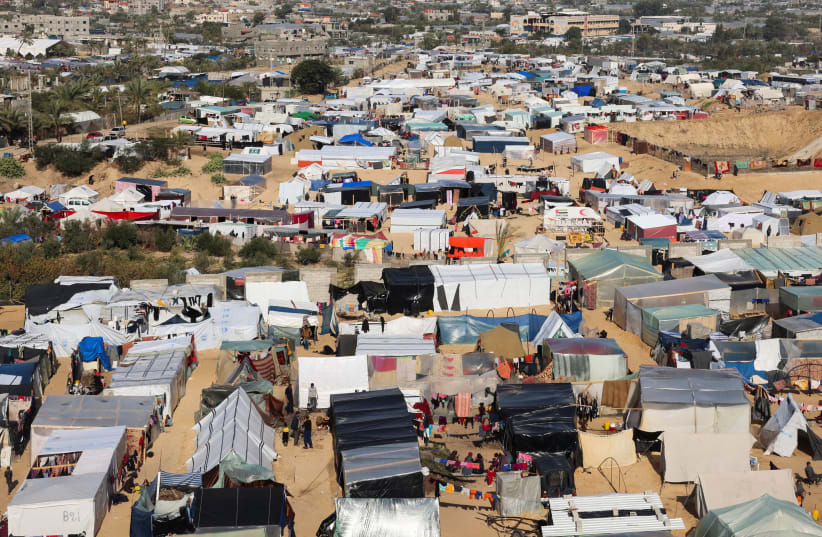
Born in Gaza in 1997 to a family of six children, Hamza grew up and lived his entire life in the Al-Remal area of Gaza. In 2021 he got his bachelor’s degree in accounting at the Islamic University of Gaza, and then worked as an accountant for two years before escaping Gaza in August of 2023. He speaks to The Jerusalem Post from his place in exile, where he continues to share and create pro-peace and anti-Hamas content.
Hamza participated in the 2019 demonstrations against Hamas rule that were violently quashed by Hamas, and has written since about his experiences in the Hamas prisons, where he went through different types of torture after he was accused of dissent. He also voiced an opposition to Hamas’s tyrannical rule, oppression of different freedoms, and indoctrination.
Can you describe the situation in Gaza right now?
“If there was a single word to describe the main conditions in Gaza it would be anarchy. The destruction of more than 70% of the infrastructure in Gaza resulted in more than 1.2 million people being displaced, most of them live in tents in southern Gaza in disastrous living conditions.
Hamza points to an issue unknown to many in Israel, namely that convicts were released en masse from Gaza’s jails, and that there is a lack of law enforcement in the Gaza Strip. According to Hamza, this paved the way for the establishment of several gangs working with Hamas militants to plunder humanitarian aid.
“Most people spend their days waiting for relief airdrops or in line to get food for their family. In the north (of the strip) humanitarian conditions worsened along with the loss of connection to relatives in the south or out of Gaza.”
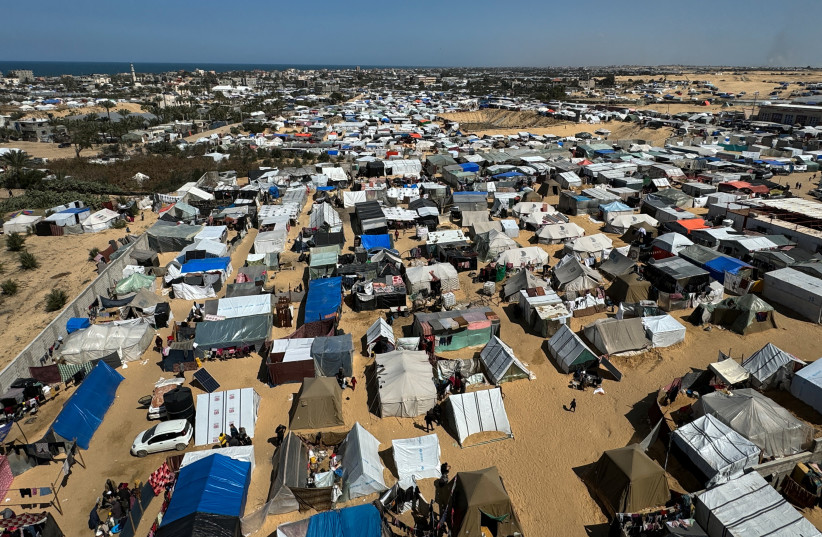
When asked about his own family, Hamza mentions that lives in a temporary tent in Rafah, burning wood to heat their food. “When we need to communicate, they must go near Rafah Crossing for an internet connection. I hope they can escape this nightmare and find a safer location soon,” he says.
The political situation
Hamza says that Hamas was losing support in Gaza before October for a variety of reasons, including the social and economic conditions, represented in the number of immigrants who fled Gaza before the war and the anti-Hamas riots which took place in July. “The leadership of Hamas couldn’t find a better solution other than turning this anger to another enemy – Israel,” says Hamza.
“I was eight years old when the disengagement plan was implemented,” he adds, explaining that in his view, “it was the most significant step towards an independent Palestinian state in decades. I still remember how people in Gaza welcomed it and the ceasefire that ended more than five years of enmity between the Palestinian Authority and Israel,” Hamza reminisces, referring to the Second Intifada and Israeli Operation Defensive Shield.
However, Hamza also stresses that Hamas succeeded in branding the disengagement plan as a “victory” for the resistance, rather than a result of peace efforts or a push towards peace, which he attributes to a lack of a clear strategy and coordination.
Referring to Hamas’s victory in the 2006 elections and the bloody rebellion against Fatah which it entailed, Hamza adds: “Hamas’s revolution was unavoidable given the Palestinian Authority’s corruption and how they turned a blind eye to Hamas’s acts while recruiting, arming, and managing various organizations in Gazan society. Many of this war’s most significant hurdles, including the Hamas tunnels, are the result of postponing the solution by closing Gaza. Hamas reintroduced the idea of creating tunnels, not only for smuggling goods and weapons, but also as a military tactic.”
Hamza shares his criticism of past Israeli operations in Gaza. “The problem with the past Israeli operations is that they weren’t serious enough to put an end to Hamas. That gave Hamas 17 years to expand their tunnels under almost every house and every street in Gaza; they became like cancer. Now both Palestinians and Israelis are paying for this,” he adds somberly.
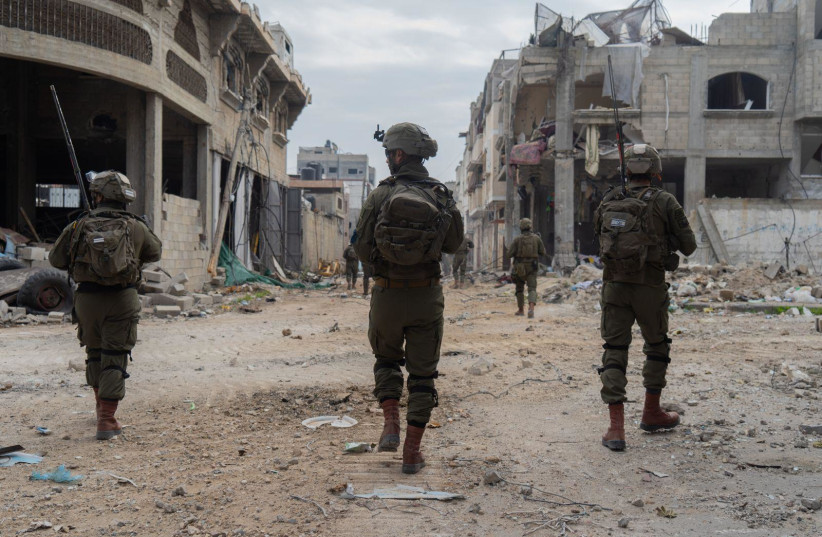
“I witnessed multiple Hamas crimes in Gaza, but what occurred on October 7th was far worse than any of them. I can’t see it as anything but a cruel attack on humanity,” Hamza says, and adds: “While I support the goal of removing Hamas, I am opposed to many of the IDF’s actions that could save many lives, as well as statements made by some Israeli authorities during the battle. Eliminating Hamas is crucial, but saving the lives of both innocent Gazans and Israeli hostages is also critical.”
“None of what has happened or is happening would be relevant without a plan for the day after,” he stresses, adding that the plan should be “developed by Israel, the restructured Palestinian Authority, the United States, and some Arab countries to avoid the mistakes made in the 2005 disengagement plan.”
How do you view a path to a solution for the conflict in general?
“It’s not easy to give an answer for a question like this, but I believe that peace and coexistence won’t be applicable by one party,” Hamza answers thoughtfully. “For that to happen, the Palestinian side should take significant steps to de-radicalize the society starting by reforming the educational system, renewal of religious discourse, and to invest their budget in providing jobs for their people. On the other hand, the Israeli government must be committed to withdraw from Gaza, West bank, and East Jerusalem.”
On the issue of de-radicalization, Hamza adds: “If you told anyone that Germany would be de-nazified 90 years ago or the UAE would be de-radicalized 10 years ago, they wouldn’t believe you. With the proper reforming of education and the renewal of religious discourse, I believe it can be accomplished. In my opinion, we should learn from the UAE’s experience on that and start making genuine efforts for rehabilitation, producing counter-content against terrorism, and providing them with more jobs to not be exploited by terrorists for money.”
Are your views unique to your environment? Or do you think they represent a consensus?
“Feeding my people jihadist propaganda for 17 years was enough to influence their thoughts about peace, to the point that calling for cohabitation seemed strange and undesirable. Still, many people believed in it, but the consequences and Hamas’s accusation of treason contributed to the silence and terrorization of many others,” adds Hamza.
When asked about the active participation of Gazan civilians in looting, holding hostages and beating kidnapped Israelis in the streets, as well as the viral scenes of celebration of the massacre and the videos of Gazans still rooting for Hamas, Hamza replies:
“There is no doubt that Hamas managed to build a base of supporters in Gaza who were radicalized by listening, reading, and watching Hamas’s agenda for years and believed Hamas leaders’ narrative that ‘there are no innocents in Israel.’ I feel ashamed because of them, and I’m even afraid to return to Gaza because of them. I want the people of Israel to know that there are many individuals in Gaza, including myself, who are opposed to these atrocities; if I were in Gaza, I would not talk about it, and many others would die if they did. Do not lose your hope in peace because of Hamas; it’s exactly what they want.”
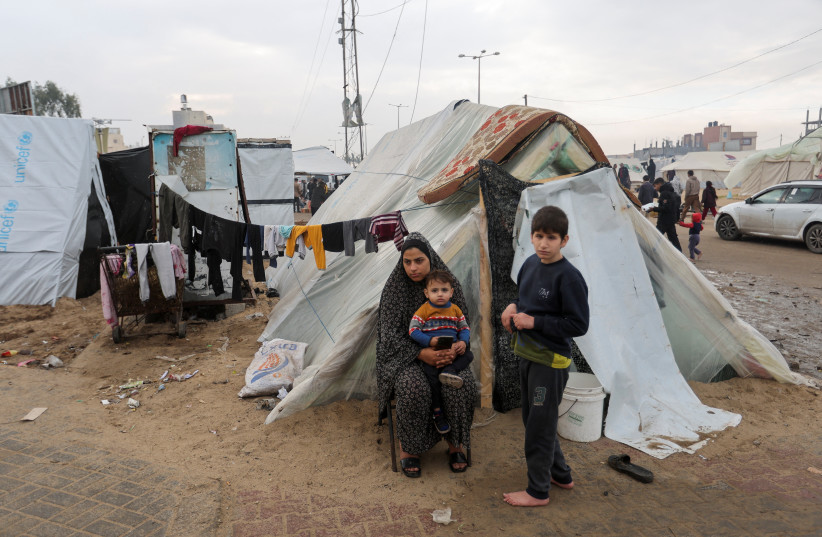
Still, you portray some unique thoughts in comparison with the environment you grew up in. Do you consider yourself as having gone through a process of de-radicalization yourself?
“I consider what happened to me as an individual experience. It started when I read a book titled ‘Islamic Fascism’ by the great author Abdel-Samad Hamed. I continued by learning about the Holocaust, and the history of Antisemitism. I was shocked about what the Jews had to go through. Then I went on to read about the common history of Jews and Arabs on this territory and about Jewish history of thousands of years, which I had never heard about before. After that, I vowed to disregard all I had heard about the Israelis and begin listening to them. I currently have numerous Israeli friends, both to discuss the Palestinian-Israeli issue and as personal pals.”
What would be your message to our readers?
“First and foremost, I’d like to express my heartfelt sympathies to the families of those killed, as well as my solidarity with all of the victims and hostage families. Unlike what the Arabic media portrays, not all Gazans are Hamas or support their crimes; we are all victims of hate ideology. If there was only one motive to advocate for peace, it would be to deny these terrorists a chance and to finish the struggle with our generation.”
Go to the full article >>Nasrallah: Screams of Israeli settlers are louder because of Hezbollah
"The screams of settlers in northern occupied Palestine are getting louder as a result of Hezbollah operations," the terrorist leader said.
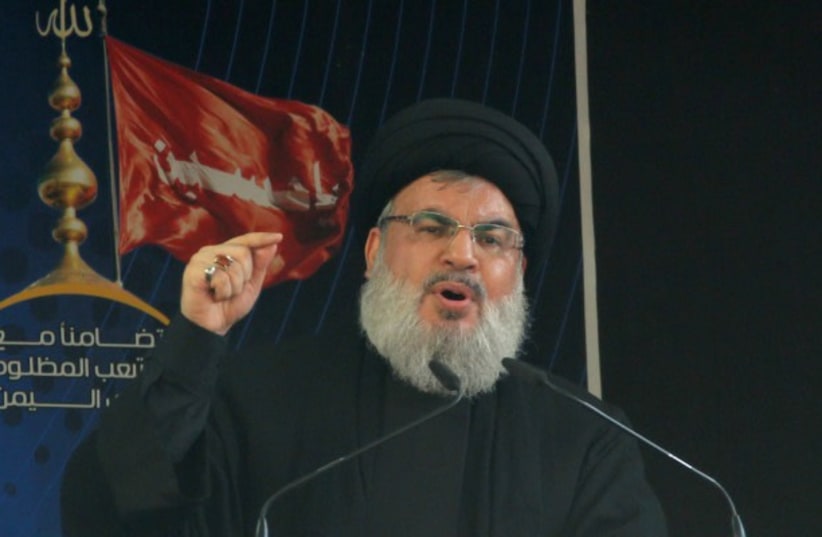
Hezbollah Secretary-General Hassan Nasrallah said in a speech on Wednesday that "what is happening to this day, especially in Gaza, is a lesson to all the peoples of the world, and we must emphasize the great achievements of the Al-Aqsa flood and what will come after it.
"All Palestinian factions are unanimous in stopping the aggression, contrary to what is being reported that Hamas is obstructing the negotiations.
"We affirm from our Lebanese front that we stand alongside the people of Gaza," the Hezbollah leader continued. "The screams of settlers in northern occupied Palestine are getting louder as a result of Hezbollah operations."
Calling out Netanyahu and Biden
Nasrallah then had a message directed at Prime Minister Benjamin Netanyahu, stating that "Even if you act in Rafah, you have lost the war."
Netanyahu has told AIPAC “To win this war, we must destroy the remaining Hamas battalions in Rafah. If not, Hamas will regroup, rearm, and reconquer Gaza and then we’re back to square one. And that’s an intolerable threat that we cannot accept.”
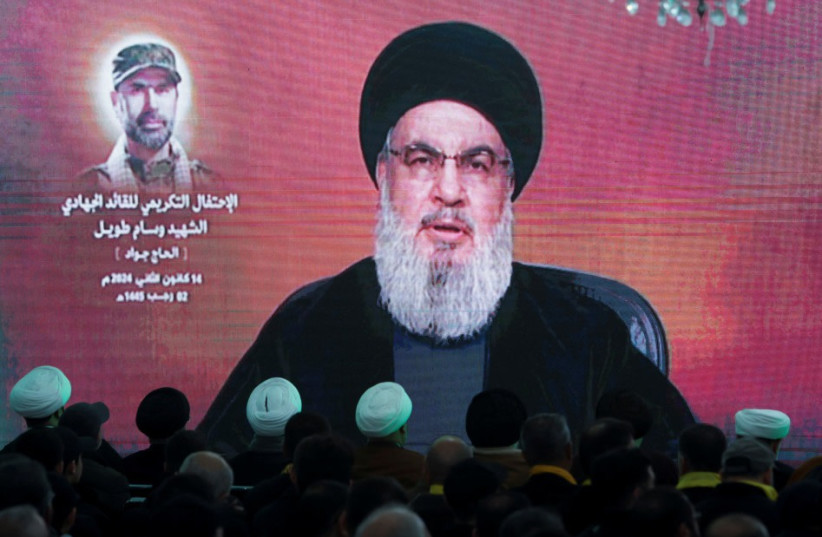
Nasrallah also targeted his words towards US President Joe Biden and his administration and criticized him for his inability to stop the war.
"Who believes that Biden can't stop the war in the Gaza Strip?" he continued. "With the wave of a pen, he could stop the war and stop the aggression against the people of Gaza. The US administration is stupid and must stop the war. We in the Lebanese front will stand by the people of Gaza, no matter what the sacrifice or the time it will cost us."
The Hezbollah terror leader also claimed that "The IDf is exhausted," and that "it's death toll is much higher than what was announced."
Go to the full article >>Israel calls accusations it is using Gaza hunger as weapon of war 'outrageous'
“There is no restriction on the amount of food and water that is allowed to be delivered into the Gaza Strip,” government spokeswoman Tal Heinrich told reporters in Israel.
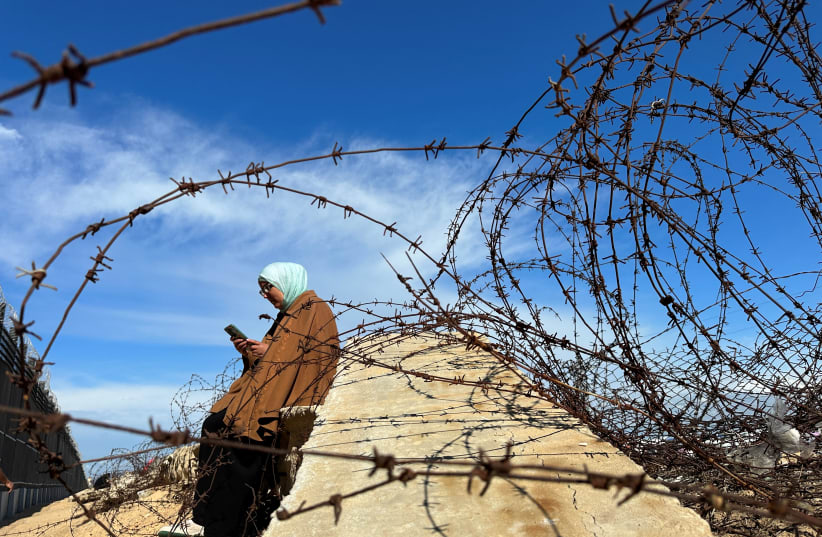
Israel rejected as “false” and “outrageous” European Union High Representative Josep Borrell’s claim it was using starvation as a “weapon of war” in Gaza.
“There is no restriction on the amount of food and water that is allowed to be delivered into the Gaza Strip,” government spokeswoman Tal Heinrich told reporters in Israel.
“We tried to better the mechanism of aid distribution across the Gaza Strip,” she said, noting that the trucks entering Gaza have excess capacity and that the backlog of aid is on the Gaza side of the border.
“The [distribution] mechanism has not been functioning as it should because they [it] was reliant on Hamas,” she said.
Heinrich spoke after Borrell delivered a blistering attack on Israel for its conduct in Gaza during a speech he delivered to the UN Security Council in New York on Tuesday in which he said that in Gaza, “starvation” was used as a “weapon of war.”
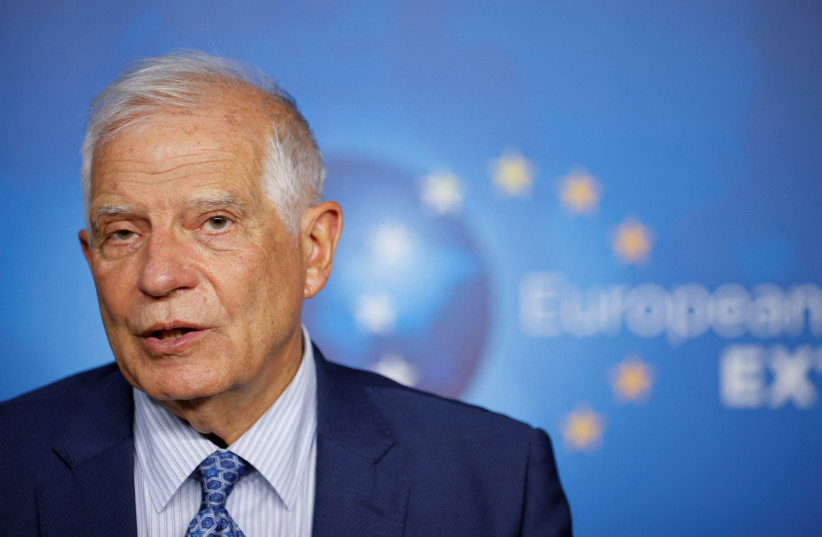 European Union Foreign Policy Chief Josep Borrell speaks on the tensions between the neighbouring Western Balkan nations in Brussels, Belgium, August 18, 2022. (credit: REUTERS/Johanna Geron)
European Union Foreign Policy Chief Josep Borrell speaks on the tensions between the neighbouring Western Balkan nations in Brussels, Belgium, August 18, 2022. (credit: REUTERS/Johanna Geron)
 European Union Foreign Policy Chief Josep Borrell speaks on the tensions between the neighbouring Western Balkan nations in Brussels, Belgium, August 18, 2022. (credit: REUTERS/Johanna Geron)
European Union Foreign Policy Chief Josep Borrell speaks on the tensions between the neighbouring Western Balkan nations in Brussels, Belgium, August 18, 2022. (credit: REUTERS/Johanna Geron)“We are facing now a population fighting for their own survival,’ Borrell said as he painted a dire picture of the impact of the war in Gaza using Hamas data.
More than 30,000 Palestinians in Gaza have been killed since the start of the war, while 1.8 million people have been displaced, and another half a million people are “on the brink of starvation,” Borrell said. Israel has stated that over 13,000 of the Gaza fatalities are combatants.
Israel's allies assert hunger crisis in Gaza, send aid by land and sea
He spoke as the international community, including Israel’s strongest allies, the United States and Great Britain, have asserted that there is a hunger crisis in Gaza. The United States has pushed to open Gaza’s air and sea space for the delivery of aid and has pressured Israelis to open additional land crossings into the enclave.
“Humanitarian assistance needs to reach Gaza, and the European Union is working as hard as it can to make this possible,” Borrell said.
He blamed Israel for the humanitarian crisis, noting that at issue was not “a natural disaster. It is not a flood. It is not an earthquake. It is man-made.
“And when we look for alternative ways of providing support – by sea or by air – we have to remind that we have to do it because the natural way of providing support through roads is being closed, artificially closed,” Borrell said.
“Let humanitarian support flow into Gaza. Continue asking – and more than asking – Israel not to impede humanitarian to go through the natural way, which is by road,” Borrell stated.
He appeared to compare Israel to Russia when he said, “When we condemn this happening in Ukraine, we have to use the same words for what is happening in Gaza.”
Borrell also spoke in support of the United Nations Relief Works Agency, which is the main service provider for Palestinian refugees. Israel is working to close the agency after finding that at least 12 of its staff members had participated in the Hamas-led October 7 invasion of Israel in which over 1,200 people were killed and another 253 were taken hostage.
Israel has also said that at least 190 of its staff members are connected to Hamas.
Borrell pushed back at criticism by UNRWA’s opponents that by recognizing as refugees the descendants of those Palestinians who fled from Israel during the 1948 War of Independence, it was creating a permanent and expanding class of refugees.
“Let me remind you something,” Borrell told the UNSC. “UNRWA exists because there are Palestinian refugees. It is not a present to the Palestinians; it is an answer to their needs. UNRWA exists because first, there were Palestinian refugees. We won't make these refugees disappear by making UNRWA disappear. They will still be there.
“In fact, there is only one way to make UNRWA disappear: making those refugees citizens of a Palestinian state that coexists with an Israeli state. Almost everybody agrees on that, but how can we make this solution a reality?
“There is no magic solution. But maybe there are credible ways to try to achieve it. The two-state solution,” Borrell said.
Go to the full article >>IDF kills Hamas's Operations Unit commander in Rafah airstrike
Hamas units' actions were also coordinated by Hasna, and communicated with field operatives belonging to the terrorist organization.
An IDF aircraft strike, in collaboration with the Shin Bet intelligence, killed Muhammad Abu Hasna, a commander in Hamas’ Operations Unit in Rafah on Wednesday.
Hasna was an operative in Al-Qassam Brigades, Hamas’ military wing, and was involved in stealing humanitarian aid entering Gaza that was meant for Palestinian civilians and instead distributed it to other Hamas terrorists.
Hamas units' actions were also coordinated by Hasna, and communicated with field operatives belonging to the terrorist organization.
Other actions Hasna has taken
The commander of the terror organization also ran an operations room that provided information on IDF positions that would be used in Hamas attacks.
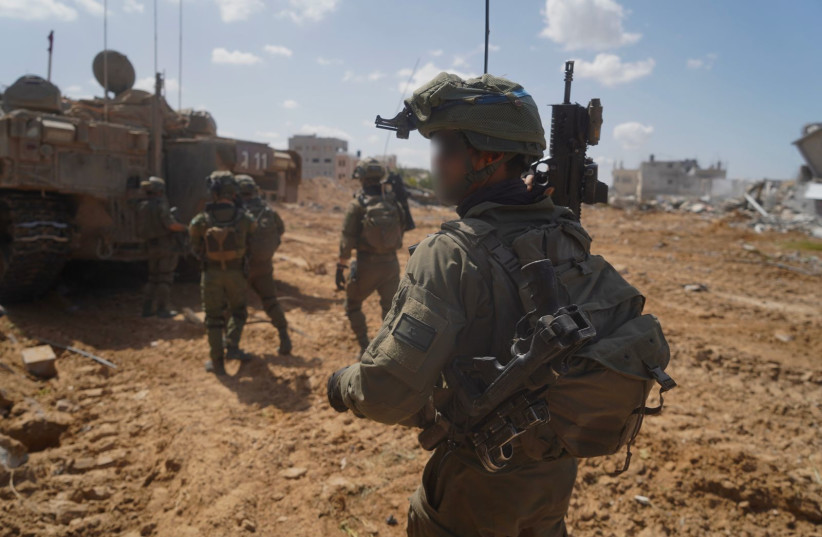
Earlier on Wednesday, Defense Minister Yoav Gallant conducted an assessment of the situation deep in the Gaza Strip and said that "even those who think we are delaying will soon see that we will reach everywhere. Everyone who was involved in the events of October 7 will be brought to justice, either we will eliminate him, or we will put them on trial in Israel. There is no safe place, not here, not outside of Gaza, and not throughout the Middle East, we will put them all in their place.
"The humanitarian issue that will soon be on the agenda with the expected landing of vessels is a central issue that will allow supplies to civilians and not to Hamas. Every act weakens Hamas strengthens our hold, and improves our ability to continue the fighting," he continued.
Go to the full article >>Blinken: Protecting Palestinian civilians is Israel’s number one priority
“Protecting civilians is a priority and not a secondary consideration,” Blinken told reporters in Washington.
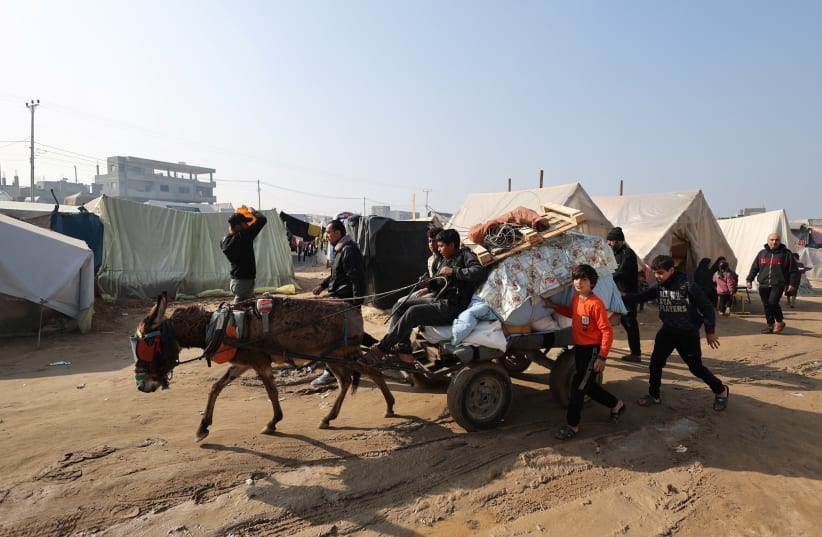
Israel must safeguard Palestinian civilians as its “number one priority” even as it defends itself against Hamas, US Secretary of State Antony Blinken said as he called for a “flood the zone” approach to humanitarian aid in Gaza.
“Protecting civilians is a priority and not a secondary consideration,” Blinken told reporters in Washington.
“That has to be job number one, even as they do what is necessary to defend the country and to deal with the threat. posed by Hamas.”
He spoke on Wednesday as he worked to place a US-built temporary pier off the coast of Gaza and pressed for a deal for the release of 134 hostages.
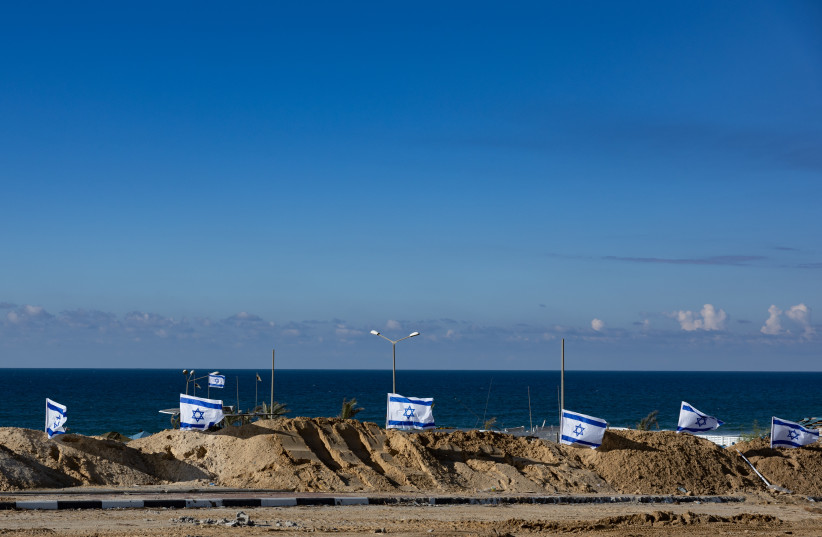
Earlier in the day he met with European Union foreign policy chief Joseph Borrell and held a video conference on the maritime pier project with officials from the EU, the UN, Qatar, Cyprus, and the United Kingdom.
“We are also of course working with Israel on this,” he said.
The maritime corridor will allow the distribution of up to two million meals every single day, Blinken said but added that the pier project would take time and was not a substrate for other avenues to bring aid into the enclave.
The US wants to see goods enter Gaza by land, air, and sea but believes that land crossings are the most efficient path for goods to flow.
The United Nations has warned that half a million people in Gaza are at risk of starvation.
Blinken said that the absence of food has encouraged lawlessness in Gaza such as looting and criminal gangs. Once there is a sustainable supply of food, lotting and black market activity around basic goods will disappear, he said.
The secretary of state vacillated between assuring reporters that Israel was allowing food into Gaza and chastising it for not doing enough.
'Gap between intent and result'
“We see a gap between the intent and the result,” Blinken said, explaining that the US is determined to close that gap.
“Food is getting in, but it's insufficient,” he stated.
Israel has to improve options for land crossings into Gaza, expand the list of items that can enter the enclave, and ensure a better deconfliction mechanism so that the goods can be properly distributed, Blinken said.
He rejected suggestions by reporters that the US should refrain from sending arms to Israel. The US has an “enduring commitment” to make sure that Israel has what it needs to defend itself, Blinken said, adding that this stance “is not going to go away.”
He stressed, however, that Israel must present the Biden administration to protect civilians should the IDF embark on a military operation in Rafah to destroy the last Hamas battalions.
The Biden administration must see “a plan that will get civilians out of harm's way” and ensure they have shelter and food, “if there's to be a military operation in Rafah,” Blinken said.
“We’ve not yet seen such a plan,” he added.
The situation of aid distribution would be eased, he said, if Hamas would accept the strong proposal on the table for a six-week pause to the war in exchange for a hostage deal.
“The question is, will Hamas take it? Does Hamas want to end the suffering that has provoked?
“We're intensely engaged every single day, almost every single hour with Qatar with Egypt, to see if we can get a ceasefire agreement that will get the hostages out, get more aid in, and create a pathway perhaps for a more lasting, secure solution.”
Blinken stressed that the “hostages remain front and center, on our minds and in our hearts.”
In Jerusalem, Prime Minister Benjamin Netanyahu met with his Dutch counterpart Mark Rutte, who made his fourth visit to Israel Wednesday since the start of the war.
Netanyahu spoke with Ruttee about the importance of a Rafah mission to the destruction of Hamas. They also spoke about the stagnant hostage talks, Israel’s opposition to unilateral Palestinian statehood recognition and the importance of humanitarian assistance.
Go to the full article >>IDF's intel analysis chief to resign in June over October 7 failures
Sa'ar is the most senior Israeli official to date to give an exact timeframe for when he will resign, although IDF sources said he was due to finish his role over the summer.
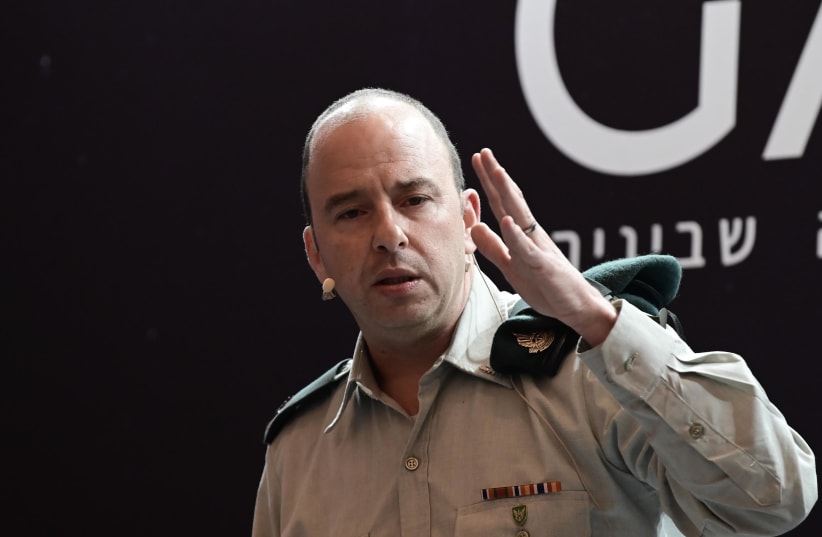
IDF intelligence analysis chief Brig.-Gen. Amit Saar will resign his post once the IDF publishes its probe of the October 7 intelligence failures, set for June, he announced on Wednesday at a closed military intelligence conference.
Saar is the most senior Israeli official to date to give an exact time frame for when he will resign, in a show of responsibility, although military sources said he was due to finish his role anyway over the summer.
Previously, a mid-level IDF intelligence major resigned.
At higher levels, IDF Chief of Staff Lt.-Gen. Herzi Halevi, intelligence chief Maj.-Gen. Aharon Haliva, and Shin Bet (Israel Security Agency) head Ronen Bar all previously hinted several months ago that they would resign, but never gave a time frame and, since then, some have speculated that one or more of them may try to stay on given that Prime Minister Benjamin Netanyahu is pushing to stay on.
Defense Minister Yoav Gallant previously went further than Netanyahu, who has denied any responsibility for October 7, by taking some responsibility, but not hinting at whether he would resign.
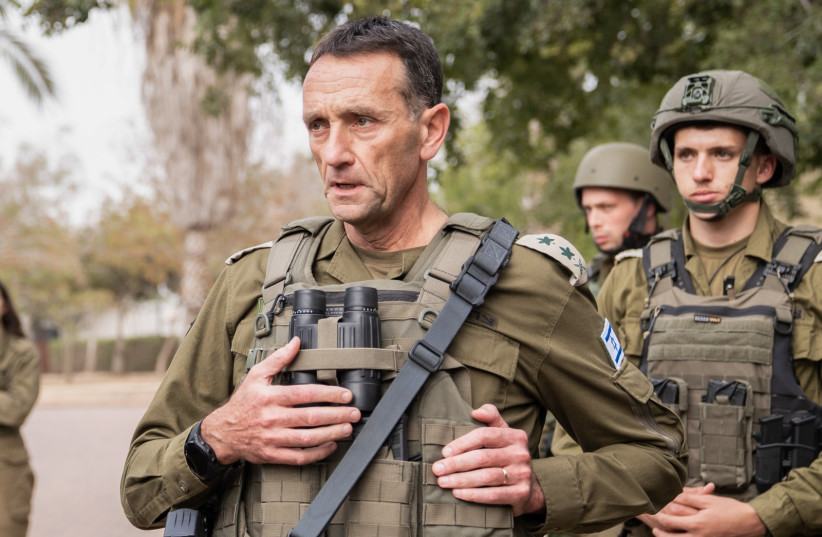
Saar’s statement was leaked first by KAN late Wednesday night but was independently confirmed by The Jerusalem Post.
IDF general calls on politicians to be 'worthy' of sacrifices
It came only hours after Brig.-Gen. Dan Goldfus called on the country’s leaders to be “worthy” of the many soldiers’ sacrifices, falling in battle.
Until October 7, Saar was considered a brilliant analyst who had correctly predicted a variety of trends with Iran, Hezbollah, and Hamas.
Saar also sent Netanyahu four letters warning that Israeli adversaries might more aggressively attack Israel due to the defense establishment being weakened by the judicial overhaul debate initiated by Netanyahu.
Netanyahu ignored most of the letters and the fourth letter was due to be sent to him shortly after October 7.
Saar’s announcement and the June probe results could set off a wider round of resignations.
Go to the full article >>Israel-Hamas War: What you need to know
- Hamas launched a massive attack on October 7, with thousands of terrorists infiltrating from the Gaza border and taking some 240 hostages into Gaza
- Over 1,200 Israelis and foreign nationals were murdered, including over 350 in the Re'im music festival and hundreds of Israeli civilians across Gaza border communities
- 134 hostages remain in Gaza, 34 of which killed in captivity, IDF says